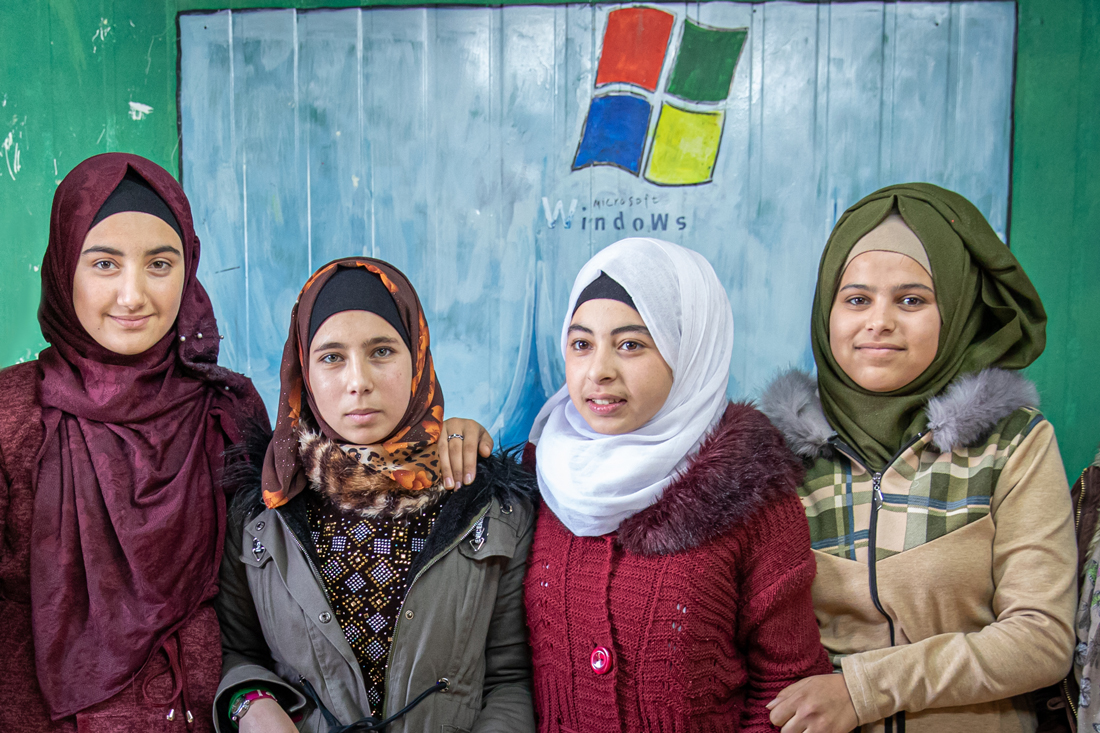Last December, before the onset of COVID-19, I had the opportunity to visit Zaatari in Jordan – the world’s largest camp for Syrian refugees – to learn more about the challenges and opportunities refugees face. I met a young girl, Doha, who was participating in a computing class. I asked her what she thought about this class, and she said, “Computing is the language of life today. It’s how things get done.”
This week, while participating in the 75th United Nations General Assembly, I’m reflecting on Doha and the inspiring leaders of the camp to see what more we can do to empower refugees and vulnerable communities, especially given the impact of the global pandemic. With the urgency of the moment, this week Microsoft Philanthropies will expand the reach of one of our programs to help underserved communities.
Two years ago at the 73rd United Nations General Assembly, Microsoft President Brad Smith announced AI for Humanitarian Action as part of the Microsoft AI for Good program, a $165 million initiative to help unlock the power of data and AI to address some of the biggest challenges facing society today. The five-year AI for Humanitarian Action commitment was launched to help change the way front-line relief organizations anticipate, predict and better target response efforts related to disaster recovery, the needs of children, promotion of human rights, and protection of refugees and displaced people.
Over the past two years, we’ve worked with selected nonprofit and humanitarian organizations to deliver on the program’s promise to help respond to global humanitarian issues. Some examples include:
- Human rights – Empowering the Clooney Foundation for Justice with innovative technology that supports monitoring and responding to trials around the world that pose a high risk of human rights violations.
- Refugees and displaced people – Combating wrongful deportation of asylum seekers with the Asylum Seeker Advocacy Project and KIND.
- Disaster response – Improving the reach of open mapping of vulnerable areas with Bing and the Humanitarian OpenStreetMap Team (HOT)
- Needs of children – Enhancing surgical outcomes and helping more children in need of facial surgery through the use of a facial modeling algorithm with long-time nonprofit partner Operation Smile.
Since 2018, the need to accelerate the pace of innovation has increased rapidly due to growing inequality and the COVID-19 pandemic. Building on the progress of the past two years and the urgency of the moment, we’re expanding AI for Humanitarian Action to be an open grant program to include applications from any type of organization through October 31, 2020, with this web portal.
The challenges faced by children are inextricably linked to those of women, including access to healthcare, which is disproportionally affecting women and children during COVID-19. As a result, we have also expanded the focus on children to include women.
“An effective response to COVID-19 accounts for the disproportionate impact on vulnerable communities, including women and girls,” said Michelle Nunn, President and CEO of CARE. “It is essential to listen to women and girls and ensure that all involved collect, publish and act on sex-disaggregated data to design inclusive and effective responses to COVID-19. That’s why Microsoft’s expansion of its AI for Humanitarian Action initiative to be inclusive of the needs of women and children is needed now more than ever.”
As we work with new partners through AI for Humanitarian Action to enable their work and accelerate their impact, we remain committed to using our expertise to help empower vulnerable populations – like those in Zaatari – by ensuring we leverage technology to address the broadest societal needs.

